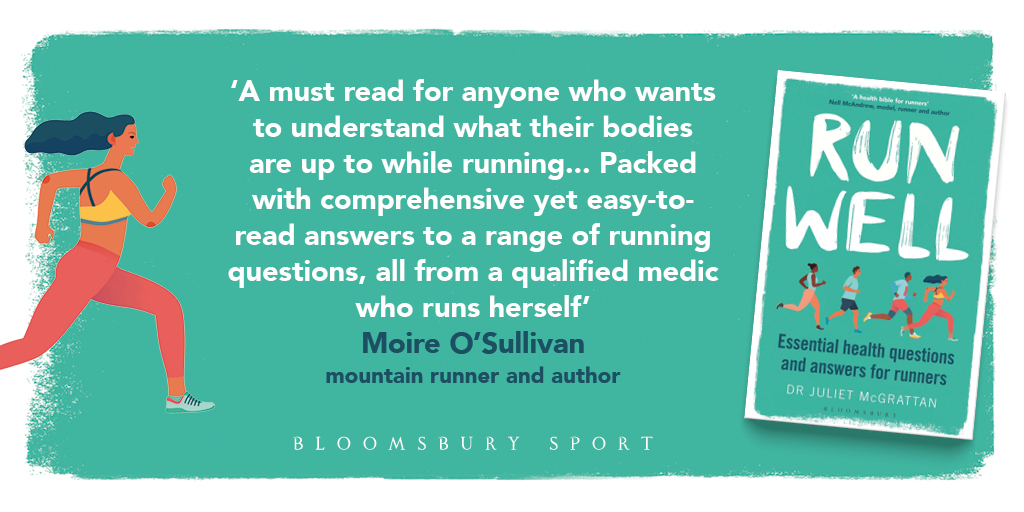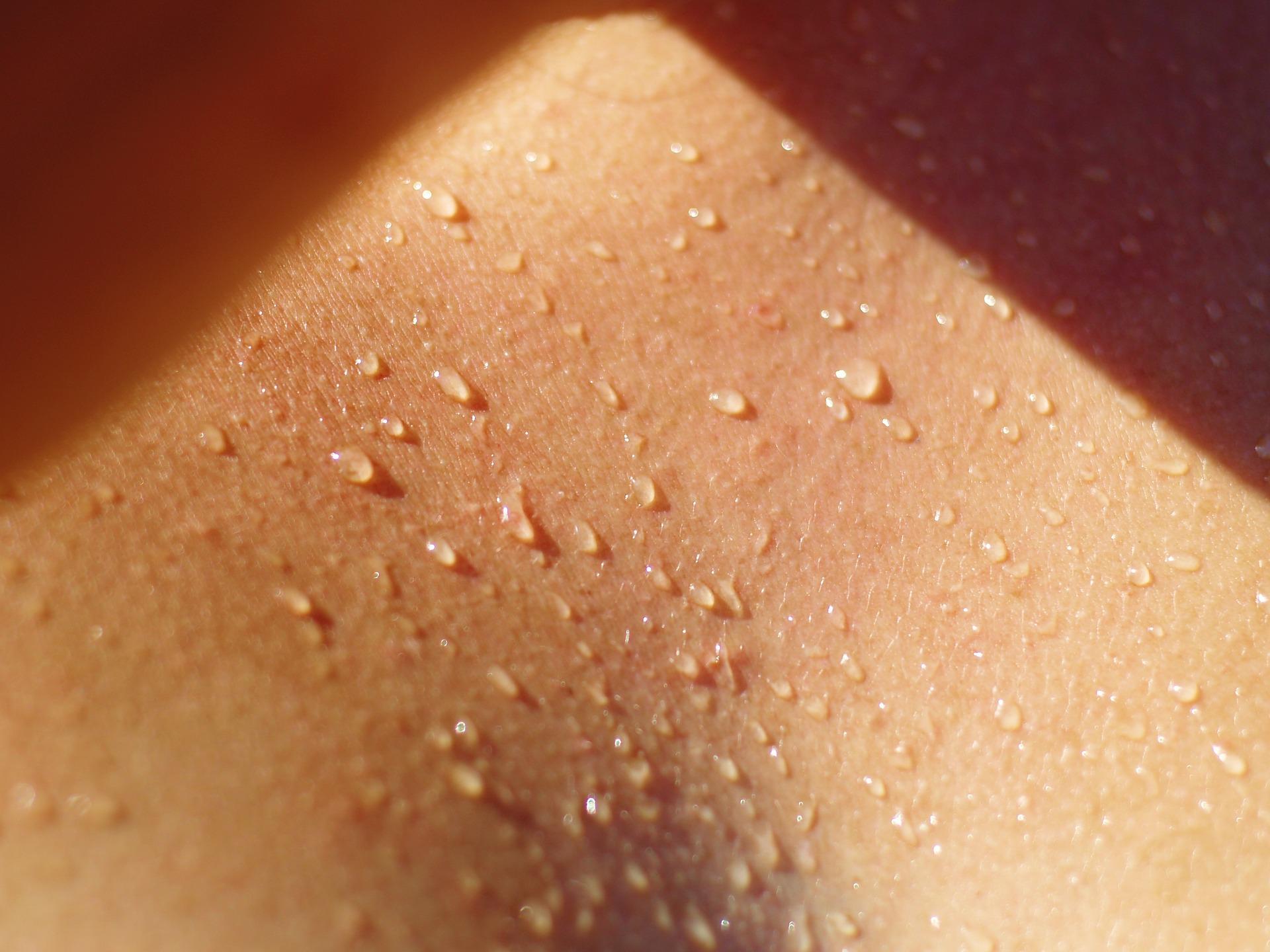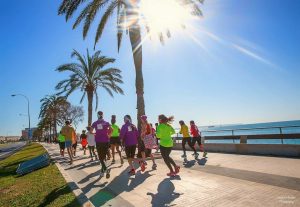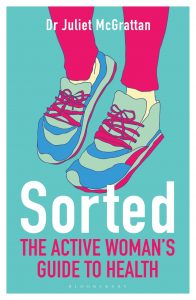We’re roasting here in the UK at the moment and we really aren’t used to it. Suddenly sweat seems to be flooding out of every pore. And when you add a run into the mix, it’s literally a case of peeling off your sodden kit when you get back. There’s no doubt that some people sweat more than others. ‘Why do I sweat so much when I run?’ is a question I’ve been asked many times. We need to think about what controls sweating, all the variables that affect sweat production and of course, how we can replace lost sweat. Here’s my guide to sweating, including some top tips for heavy sweaters too.
What controls sweating?
Sweating is controlled by your autonomic nervous system which works without you having control over it. The hypothalamus is the part of the brain which plays the biggest role in regulating when and how much you sweat.
Why do we sweat?
The main function of sweating is to cool us down. When sweat evaporates away from the surface of the skin it takes heat with it. The hypothalamus is the body’s thermostat and it likes to keep body temperature within a narrow range. When you exercise, your internal temperature goes up – working muscles generate a lot of heat – so the cooling systems such as sweating and flushing of the skin are triggered. Interestingly, there may be other factors which aren’t related to body temperature which affect sweating rate including muscle contraction and hydration. There is still alot of research being done here but it might explain why some people sweat quickly and before they’ve got hot.
Why do some people sweat more than others?
We all have millions of sweat glands in the dermis of our skin but some people have more than others and the amount of sweat each gland produces varies between individuals too. Sweat glands are more dense in certain areas including the armpits, forehead and palms of the hands.
There is a medical condition called hyperhidrosis which results in excessive sweating. This can be in just one area or all over the body. There may be an underlying cause such as the menopause, an overactive thyroid gland (hyperthyroidism) or anxiety. Sometimes however, it is overactivity of the autonomic nervous system with no other cause and this is known as primary focal hyperhidrosis. It can have a huge impact on life and can be a barrier to exercise too.
What’s in sweat?
Sweat is actually 99 per cent water but it does contain a whole range of other things too including lactic acid, urea, sodium, potassium, calcium, magnesium, iron, copper and zinc.
Sweat isn’t just sweat however. There are two types of sweat gland:
- Eccrine sweat glands – These produce a more watery sweat and are very active when you exercise.
- Apocrine sweat glands – Sweat produced by these glands is thicker and more concentrated and these glands are more active when you are nervous or stressed
Why does sweat smell?
Sweat itself doesn’t actually smell bad. It’s the bacteria on the surface of your skin breaking down the sweat that releases the odour. Armpits and groins have larger numbers of skin bacteria due to the presence of hair follicles. Combine that with more apocrine sweat production in these areas and you can see why body odour from here will smell more than sweat dripping off your forehead.
How much sweat do I lose when I run?
It’s impossible to give a general figure for sweat loss, there are so many variables. Of course the number of sweat glands and how much they produce is an important factor but sweat rates also vary with fitness, intensity of activity, the weather, BMI, diet, medication and more. Look online and you’ll find figures ranging from half a litre to four litres per hour. It’s a very individual thing.
How can I replace my sweat loss?
Because it’s hard to generalise about how much sweat you lose, it’s equally hard to give guidelines for how much fluid to drink to rehydrate yourself. Your thirst is a good guide, thirst mechanisms are well designed and very sensitive; your body wants to keep hydrated to perform at its best. Do remember however that you are losing body salts, particularly sodium, alongside water in your sweat. If you are sweating heavily or exercising for over an hour then you need to replace salts too. You can do this through electrolyte sports drinks or tablets to mix with water, homemade electrolyte drinks and also through salty snacks.
Top tips for heavy sweaters
If you’re struggling with sweating here are some simple things to help:
- Know that you’re normal and your body is being efficient in losing heat.
- Use an anti-perspirant which blocks pores rather than a deodorant which just masks smell. Speak to your pharmacist about more heavy duty ones which contain aluminium.
- Watch for triggers that might make sweating worse such as spicy food, caffeine and alcohol.
- Experiment with the fit of your running kit – looser clothes might be better.
- Try technical fabrics which wick sweat away from skin rather than natural fibres. Top tip – merino wool doesn’t retain the sweaty smell!
- Look after your skin, use lubricants to reduce chafing (read my advice on avoiding and treating chafed skin) and always shower thoroughly soon after a run.
- Make your own rehydration drink – fruit squash and a pinch of salt.
- Take spare clothes to change into after runs and races.
- See your doctor if your sweating (outside of running) is interfering with your everyday life.
Enjoyed this post? You’ll love my book Run Well: Essential health questions and answers for runners. There’s more on sweating, how to hydrate and the risks to your kidneys if you get it wrong. Published by Bloomsbury and available to buy now.









It’s been interesting peeling off the sports bra lately!